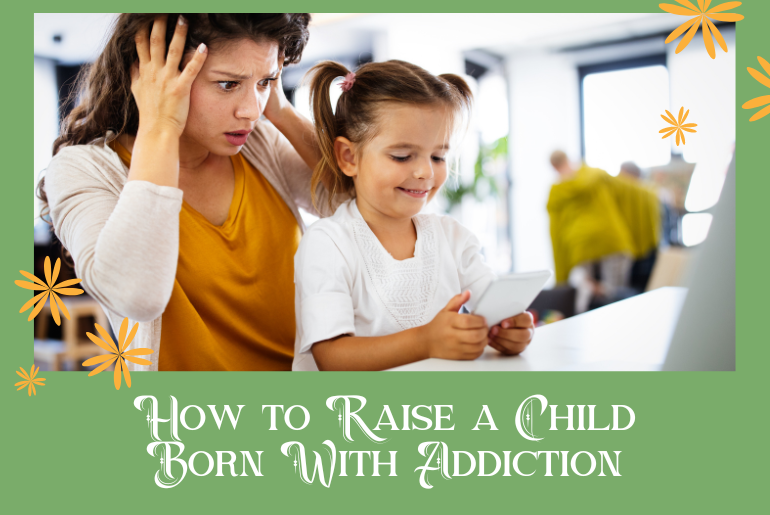The relationship between parents and children is one of the most important relationships in a person’s life. It profoundly impacts the development and growth of a child, shaping their beliefs, values, and personality. However, it’s not uncommon for there to be a communication gap between parents and children, causing frustration, misunderstandings, and even conflicts.
As a child, you must wonder, why can’t my parents understand me? Or am I being impossible to understand? There’s nothing to overthink; I will discuss why parents and children struggle to understand each other and provide strategies and suggestions for bridging the communication gap.
ALSO READ: Why Do Parents Break Their Promises?
Understanding the Communication Gap
Communication breakdowns between parents and children can occur for many reasons, including differences in life experiences, expectations, and perspectives. To help bridge this gap, it’s important to approach your parents with empathy, actively listen to their points of view, and express your own feelings and needs clearly. The following factors shed more light on the communication gap:

1. Different Generations and Their Values:
Communication gaps between parents and children can often be attributed to generational differences in values and beliefs. Let’s say the values and attitudes of parents from the Baby Boomer generation can be vastly different from those of their Millennial or Gen Z children. These differences can cause misunderstandings and conflicts, especially in areas such as technology, education, and lifestyle choices.
2. Influence of Upbringing and Environment
How a child is brought up and the environment in which they grow up can also influence their values and beliefs. We often hear of children who grow up in a strict household; struggle to communicate and understand their parents who grew up in a more lenient environment. Additionally, experiences such as trauma, abuse, or neglect can affect a child’s communication and understanding with their parents.
3. Influence of Societal and Cultural Norms
Societal and cultural norms can also significantly shape a person’s values, beliefs, and attitudes. For example, children who grow up in more progressive or liberal communities may have different views and beliefs than those who grow up in more traditional or conservative communities. These differences can also lead to misunderstandings and conflicts between parents and children.
Factors Affecting Understanding between Parents and Children
Now that you understand the communication gap, what exactly affects understanding between folks and their kids? Parents and children have a special relationship by nature or nurture. This relationship can be affected by many factors that, include:

A. Age Differences
Age differences between parents and children can impact their understanding level. It’s not far-fetched that older parents have trouble relating to or understanding their younger children and vice versa. This often leads to misunderstandings and miscommunication, causing frustration and tension in the relationship.
B. Family Dynamics
Family dynamics can also play a significant role in affecting understanding between parents and children. Family dynamics such as sibling rivalry, divorced or blended families, or the loss of a parent can impact the relationship and communication between parents and children. In these situations, all family members need to be aware of these dynamics and make an effort to understand each other’s perspectives.
C. Communication Styles
Communication styles can also contribute to misunderstandings between parents and children. Some children may respond better to a more direct approach, while others may need more gentle or nurturing communication. Similarly, parents should try a more authoritarian approach and, at other times, a more democratic communication style. Understanding these differences and being mindful of each other’s communication styles can help improve understanding and reduce conflicts.
TRENDING: Why Do Parents Hold You Back?
Strategies for Bridging the Gap
It’s not uncommon for parents and children to have difficulty communicating with each other. As a parent, you may feel like your child speaks a different language or vice versa. Here are some ways to bridge this gap:

A. Active Listening
Active listening is a critical component of improving understanding between parents and children. This involves focusing on what the other person is saying, asking clarifying questions, and avoiding distractions. By actively listening to each other, parents and children can better understand each other’s perspectives and feelings, leading to improved communication and reduced conflicts.
B. Empathy and Understanding
Empathy and understanding are unifiers of nations and are widely useful for bridging the communication gap between parents and children. By putting yourselves in each other’s shoes and trying to understand your perspectives, you can better appreciate each other’s experiences and feelings, leading to improved relationships and better communication.
C. Open and Honest Communication
Open and honest communication is critical for improving understanding between parents and children. This involves expressing thoughts, feelings, and concerns clearly and concisely and avoiding blame and criticism. When both parents and children are open and honest in their communication, they can work through conflicts and misunderstandings more effectively, leading to improved relationships and better understanding.
D. Seeking Outside Support
Sometimes, seeking outside support from a counselor, therapist, or support group can help improve understanding and communication between parents and children. This can provide a neutral and safe space for families to work through conflicts and improve their relationships. Additionally, seeking outside support can provide families with new strategies and insights for improving communication and understanding.
FAQ
How do I get my parents to understand me?
There is a way to get your parents to understand you, even when it seems impossible. One effective method is to choose your words carefully. The right words can be powerful and can help you communicate your feelings and perspectives in a way that resonates with your parents. As the person who knows your parents best, you can speak in a language that will stay with them.
By taking the time to understand their perspective and speaking to them in a way that appeals to them, you can build a closer relationship and increase the chances that they will understand you. With patience, persistence, and a willingness to listen, you can improve your relationship with your parents and help them understand you better.
Lastly, another important aspect to consider is affirmations. Acknowledge their responsibilities towards you and express gratitude for their efforts. Parents love to hear their children recognize and appreciate their hard work, which can further strengthen the relationship between parent and child. By taking the time to understand their perspective, speaking to them in a way that appeals to them, and affirming their efforts, you can build a closer relationship and increase the chances that they will understand you.
Bottom Line
There can be several reasons why parents may not understand their children. It’s important to remember that while understanding may not always come easily, open and honest communication can help build stronger relationships between parents and their children. If your parents have hurt you with the communication gap, you should consider talking with them about it. Give them a chance to understand you better and whether they can meet you halfway or not. It’ll be worth it if you can find a way to maintain (or even improve) your relationship.

I am Christiana Williams, a multitasking sociologist and proud mama of three. With a passion for exploring the complexities of modern parenting, I bring my unique perspective and expertise to the table. As a seasoned parent and seasoned sociologist, I have a wealth of knowledge and experience to share. From the ups and downs of raising a family to the latest research on child development, I am on a mission to help other parents navigate the joys and challenges of parenthood. Get ready to be inspired, informed, and entertained as I share my insights and adventures as a parent.





One response to “Why Can’t My Parents Understand Me?”
Your blog has helped me become a better version of myself Your words have inspired me to make positive changes in my life